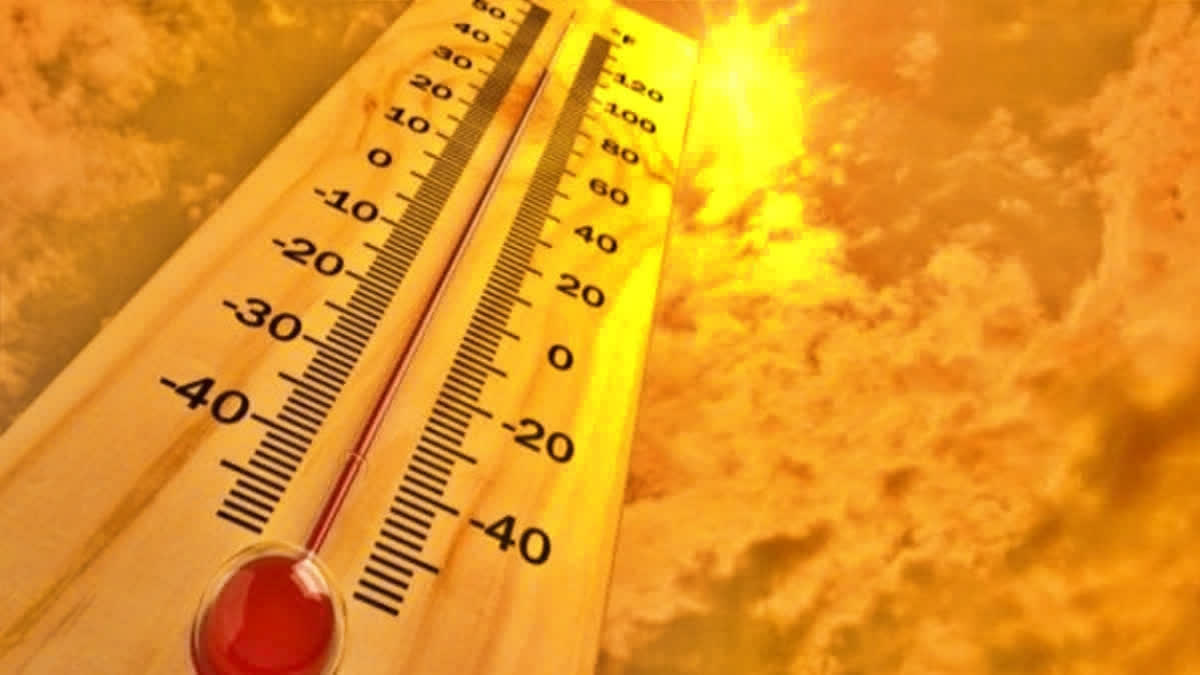Kuala Lumpur (Malaysia): Hotter, drier conditions associated with El Nino can be detrimental to our health. These tips may help. The two hottest days ever recorded were just last week, according to data from the US National Centers for Environmental Prediction. The high heat is due to a combination of the El Nino weather event and ongoing emissions of carbon dioxide.
Malaysia, like many parts of Asia, has been grappling with a heatwave for months. The Malaysian health ministry has recorded 39 cases of heat-related illness up to June. Twenty-three of those were heat exhaustion, 11 were heat cramps and five were heat strokes. Even animals were not spared. A Malaysian feedlot manager lost 20 head of cattle ostensibly due to heat stress.
After the heatwave, the region is now projected to deal with mild El Nino conditions until September before intensifying by November, leading to a notable decrease in rainfall ranging from 20 percent to 40 percent in Malaysia. El Nino conditions are expected to gradually strengthen until the end of 2023 with a probability of over 90 per cent.
El Nino often corresponds with higher temperatures and less rain. The drier conditions mean fires, particularly in forests and areas engaged in land-clearing practices. Experts warn significant amounts of smoke and pollutants will lead to a worrying haze situation. These changes can have significant impacts on human health. Experts say we need to prepare for extreme weather events in order to protect lives and livelihoods.
Well-known health impacts of El Nino are vector-borne diseases including malaria, dengue and yellow fever and water-borne diseases such as cholera, typhoid and diarrheal infections. However, it is also crucial not to overlook the effect that El Nino can have on non-communicable diseases and learn to manage or minimise the impact. Research shows a strong link between heat stress with climate change and El Nino.
According to WMO, the onset of El Nino will greatly increase the likelihood of breaking temperature records and triggering more extreme heat in many parts of the world and the ocean. Rising temperature brings hotter and drier conditions to Malaysia, increasing the risk of heat-related illnesses such as heat stroke, heat exhaustion, heat cramps and heat rashes.
Prolonged exposure to high temperatures can cause symptoms like sweating, confusion, dry skin and heat rashes, and in severe cases, it can lead to heat stroke. The sudden increase in temperature during an abnormal period affects the metabolism of internal organs resulting in failure of the heart, kidneys, lungs and other major organs.
Also read: Japanese researchers find new way to diagnose ovarian cancer
Heat stress could be minimised by spending less time outside during the peak sunshine hours, finding shade or carrying an umbrella for shade. Children, people with disabilities and older people are particularly vulnerable and should stay out of the sun entirely during peak sunshine. During its peak, El Nino can affect air quality.
Research suggests that pollutants such as nitrogen dioxide, sulphur dioxide and ozone particles can irritate respiratory systems, by triggering asthma attacks and increasing the risk of respiratory infections. Respiratory related diseases could be minimised by checking the air quality index and avoiding going outdoors during peak unhealthy air periods. Masks and an inhaler can help. Homes can be kept clean and dust-free with an air purifier.
Prolonged exposure to extreme weather events, displacement, and socio-economic disruptions caused by El Nino can contribute to climate anxiety, affecting an individual's psychological and mental health. During the drier and hotter conditions, people may spend more time indoors feeling anxious. Although Malaysia has little published research on this, eco anxiety is real although not yet considered a mental health disorder.
Positive mental health and well-being conditions can be optimised during the peak El Nino period by exercising indoors or during the cooler hours, consuming a balanced diet, practising good sleep hygiene, reaching out to people and maintaining healthy self-care activities. As temperatures get warmer, food will go bad quicker, therefore extra care should be taken when handling food.
One study showed a link between climate change and food poisoning. Changes in temperature, humidity and rainfall can impact food safety by altering the levels and ecology of pathogens, leading to an increased risk of diarrheal diseases and the spread of illnesses. Food poisoning occurs when there is an infection or irritation of the digestive tract, caused by bacteria, viruses, parasites and chemicals which can be/ live on food. Food poisoning can be avoided by exercising safe food preparation techniques and consuming fresh and healthy foods.
Government ministries and healthcare providers are taking measures to address the health impact of El Nino including health surveillance and early warning systems, strengthening healthcare infrastructure and comprehensive public health education and awareness. Communication efforts should focus on promoting adaptive behaviours and strategies to mitigate El Nino health impacts tailored to the local context to convey specific health risks in different regions.
A recent survey by the Monash Climate Change Communication Research Hub Malaysia node reported that the Malaysian public listens and trusts scientists and subject matter experts in conveying information about climate change and they are worried that misinformation and fake news stories are being communicated to them. Researchers, healthcare providers and communications experts, such as journalists, play a pivotal role in conveying accurate and understandable information related to the health impacts of El Nino.
Healthy information can help keep the population healthy by empowering individuals to make informed decisions to address the health impacts of El Nino. Collaborative efforts between authorities, experts and individuals are particularly important to minimise the impacts of El Nino. (PTI)



